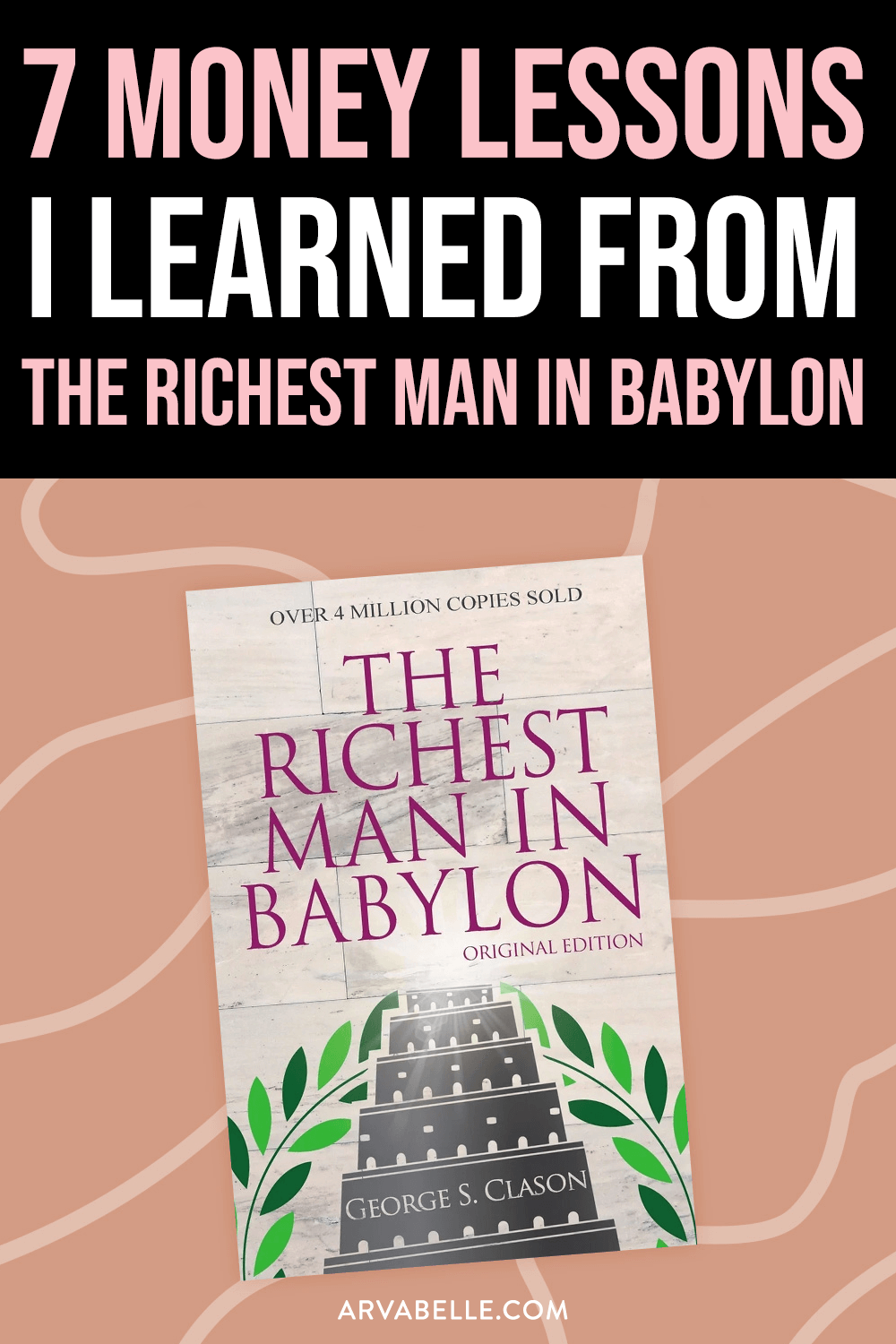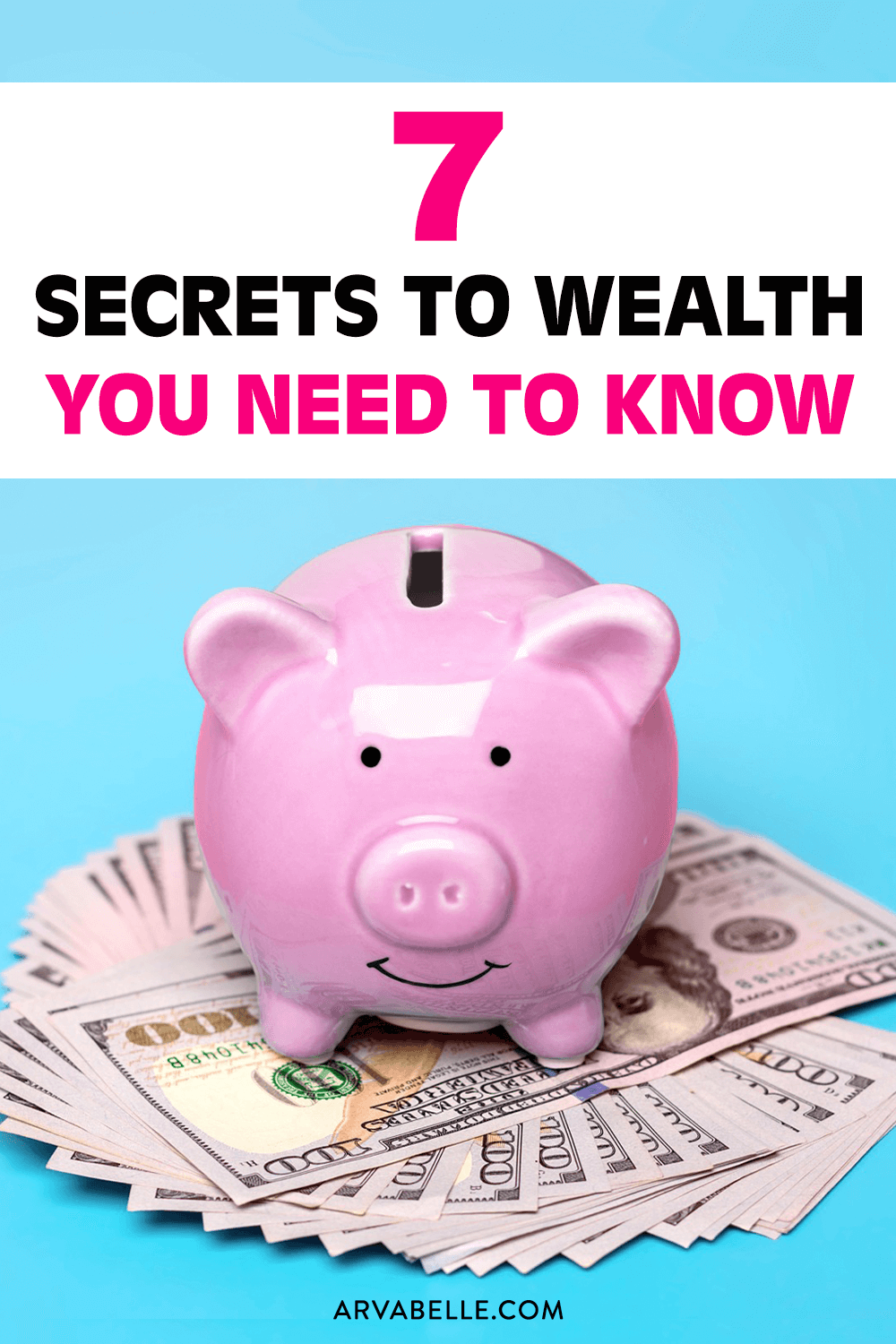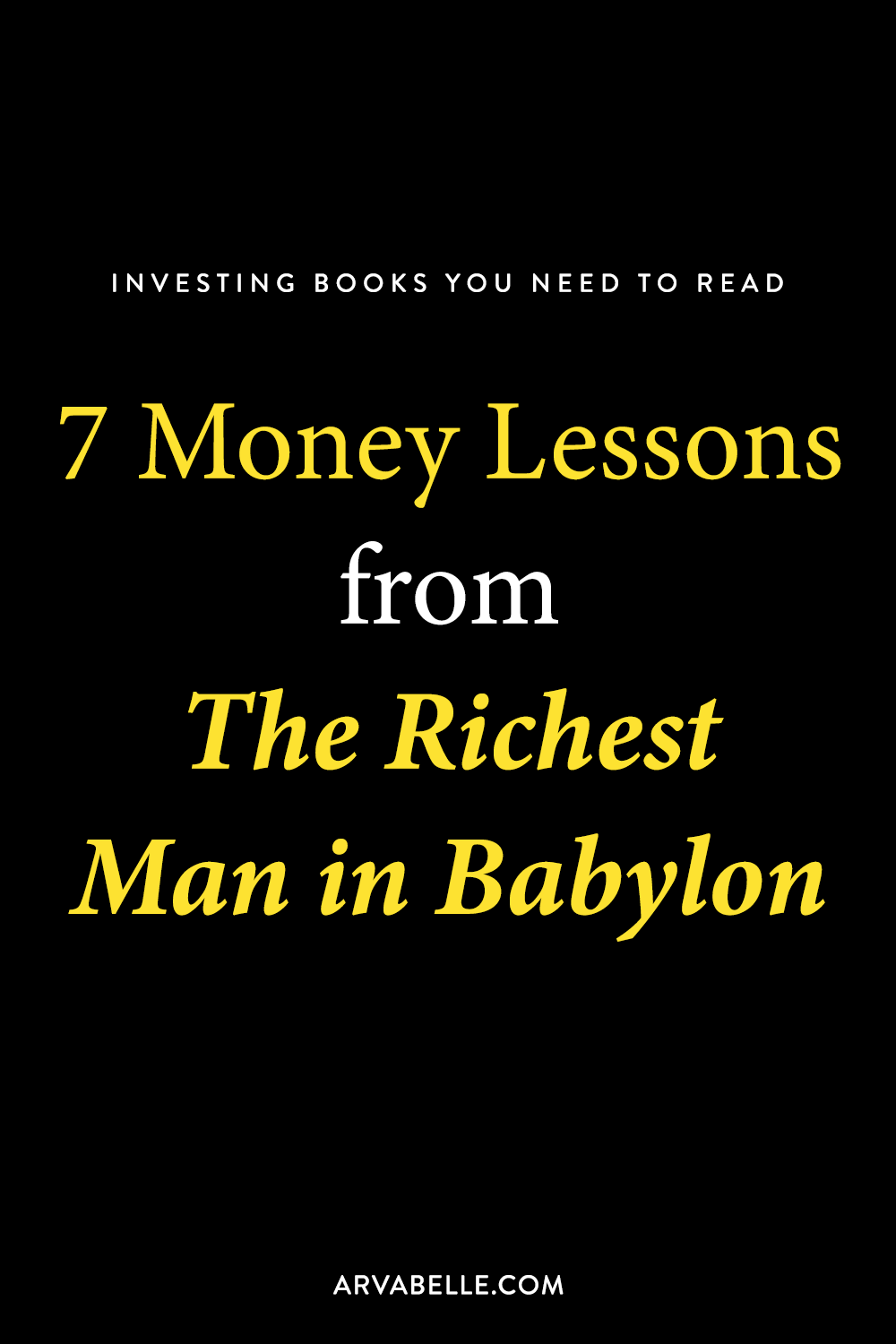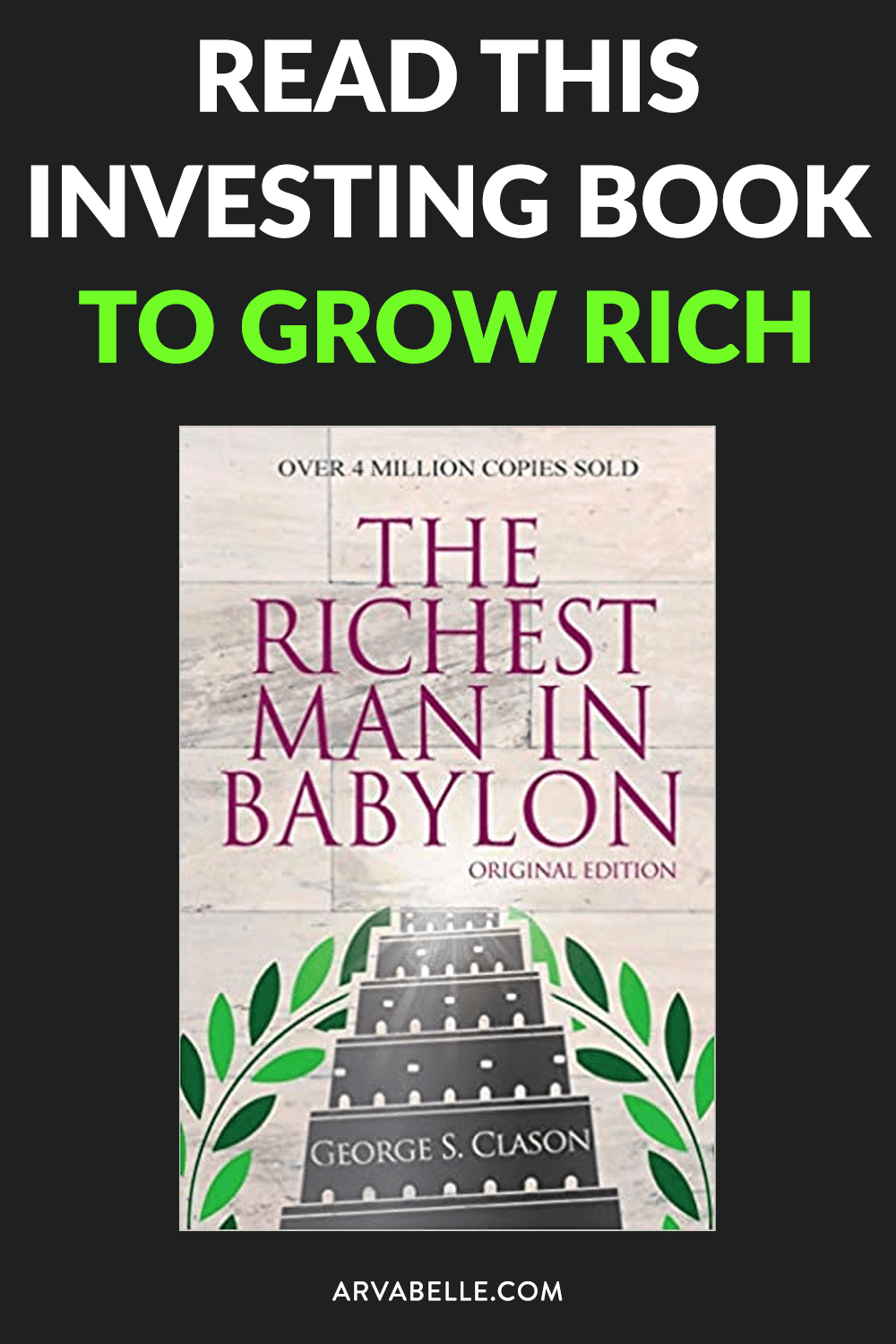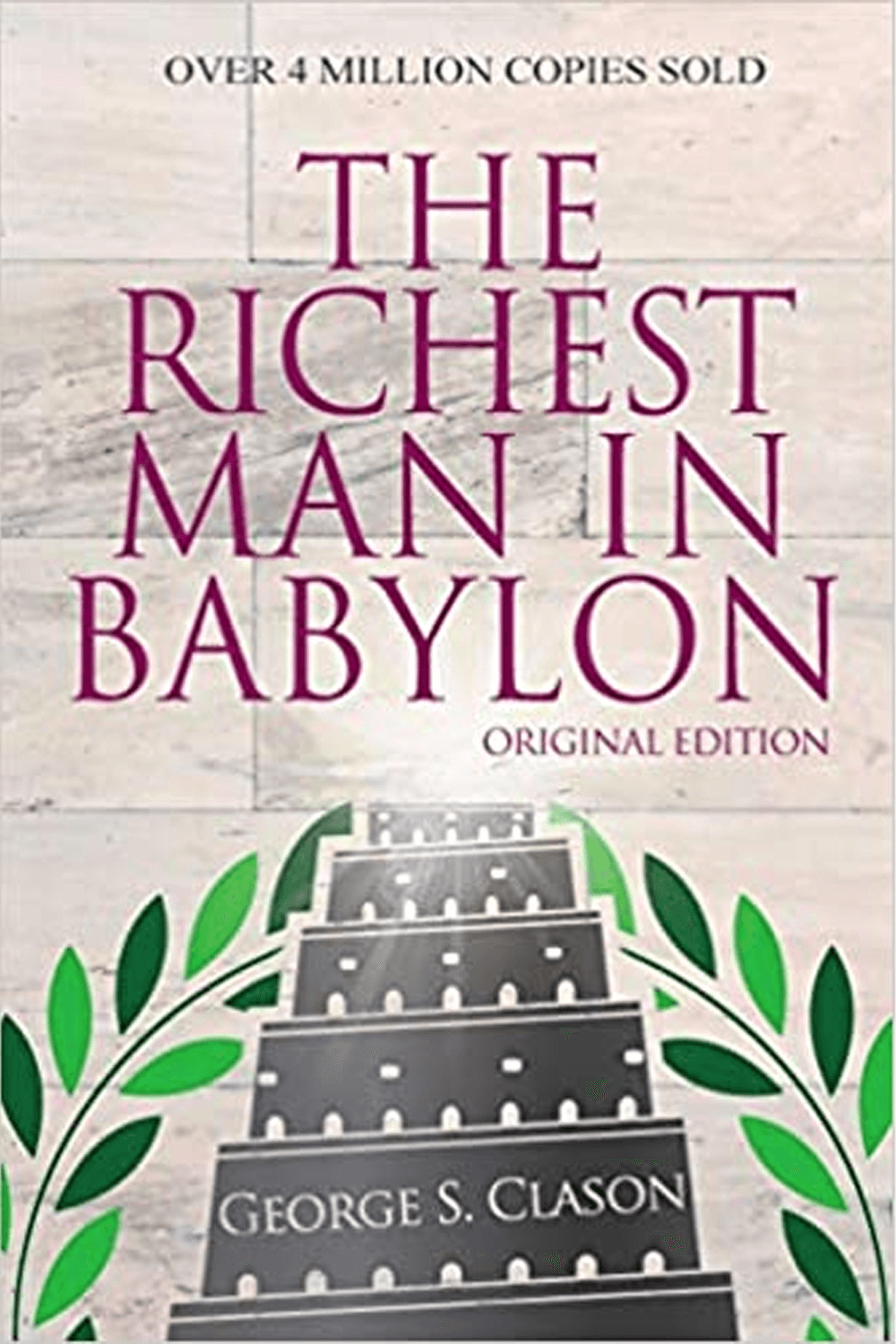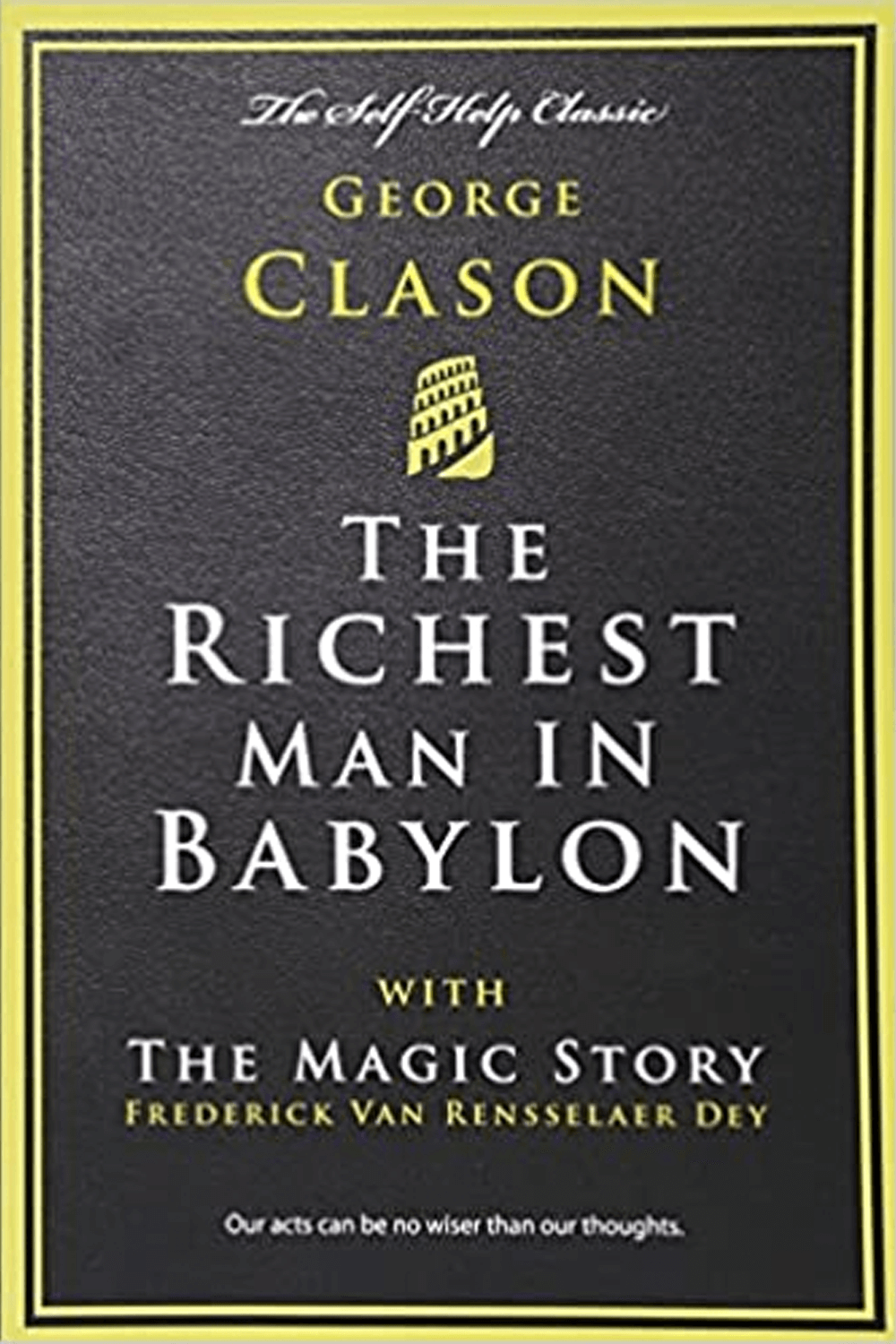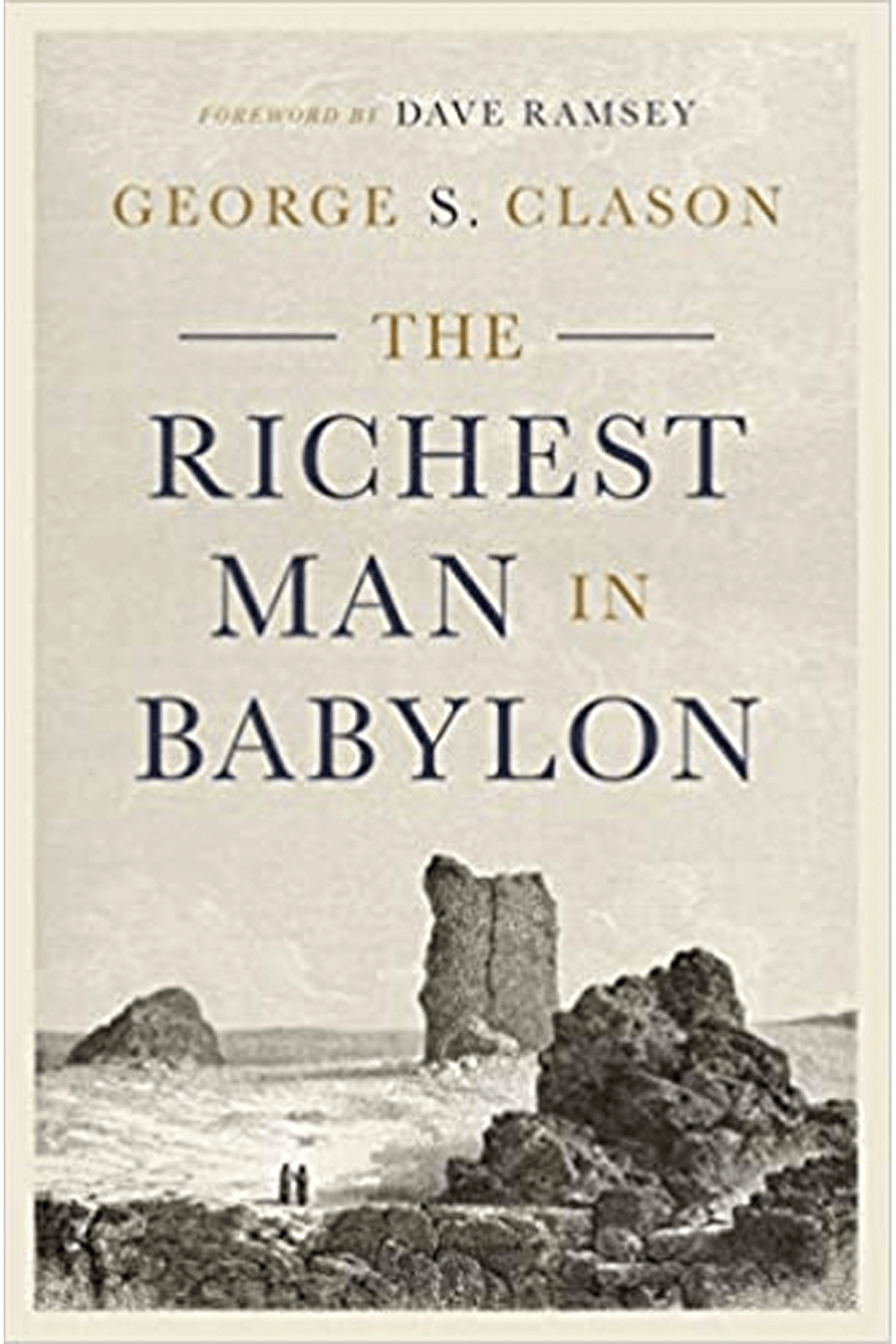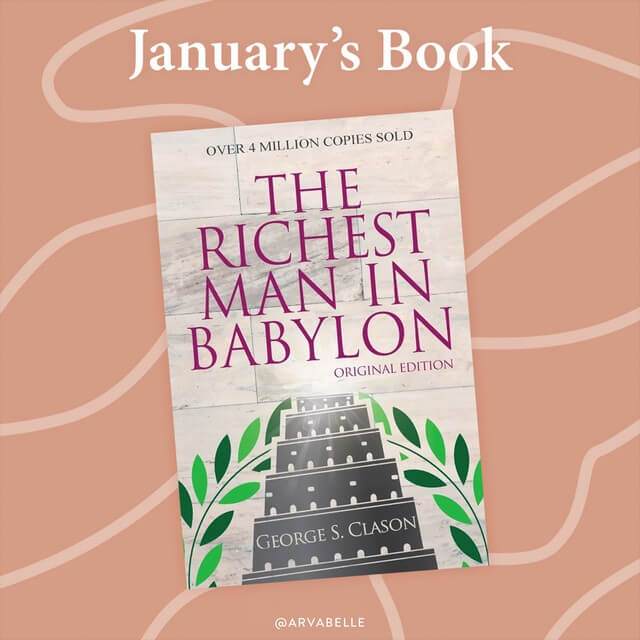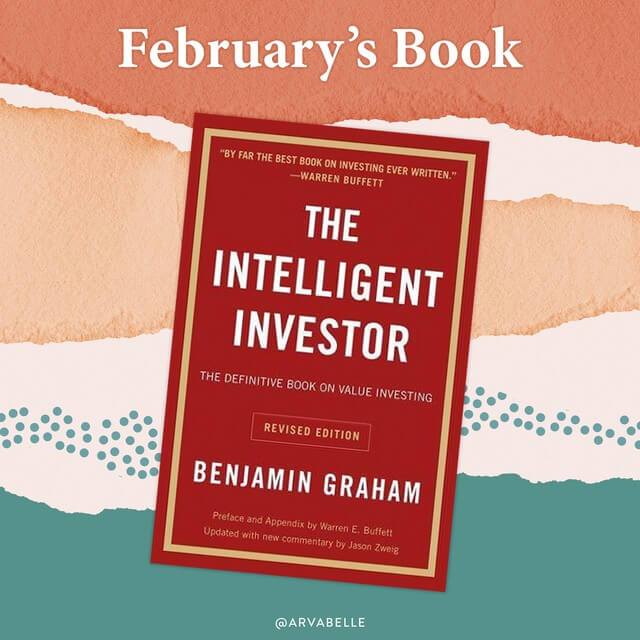If you’ve been following along with our Book Club, this January we read The Richest Man in Babylon.
The Richest Man in Babylon is a classic book about managing your money and growing your wealth. Even though this book was originally published in 1926, all of the principals still hold true today.
If you’re not a part of the Book Club, be sure to subscribe to the newsletter. You don’t want to miss out on the money, finance, and business books we’ll read this year!
In The Richest Man in Babylon, there are two sets of rules that are laid out as guidelines for managing your money and wealth. “The 7 Cures for a Lean Purse” and “The 5 Laws of Money”.
All of these rules can be summarized in 7 lessons.

Start thy purse to fattening
Lesson 1: Pay yourself first
The first rule is to pay yourself first, and to save at least 10% of your income.
“For every ten coins thou placest within thy purse take out for use but nine. Thy purse will start to fatten at once and its increasing weight will feel good in thy hand and bring satisfaction to thy soul”.
They emphasize the point of starting small, but starting somewhere. Over time those small savings start piling up. Other opportunities will arise where you can have that money start working for you.
It’s suggested that 10% can be easily saved by anybody, as long as your expenses are under control. In The Richest Man in Babylon, they discuss why it doesn’t make sense to pay the shoe maker and the brick layer before paying yourself that 10%.
Set aside 10% for your future first, before you start spending on any non-essentials. Pay yourself like you pay the IRS. Make it a mandatory obligation to save and invest a certain percentage of your income.








Control thy expenditures
Lesson 2: Avoid lifestyle inflation
The second lesson is to live below your means and avoid lifestyle inflation.
“What each of us calls our ‘necessary expenses’ will always grow to equal our incomes unless we protest to the contrary.”
“Confuse not the necessary expenses with thy desires”.
What they’re saying here is not to confuse your wants with your needs. As we make more money, we are naturally inclined to start spending more money. We start buying bigger houses, and fancier cars.
The Richest Man in Babylon encourages you to live below your means. Only buy what you need. As your income increases, continue spending as if you were still on a lower income, and invest the difference.








Make thy gold multiply
Lesson 3: Let compound interest work for you
The third lesson is to invest wisely and use compound interest to your advantage.
“The earnings it will make shall build our fortunes … Learn to make your treasure work for you.”
The idea here is to have your money do more, so that you can work less.
When you invest, you have compound interest working on your side. The more you invest, the more that money grows. The benefit? Through compound interest, that money will earn you even more money!
If you can make wise investments, you can grow your money at a steady pace. Eventually, you should end up with more money that you would have if you only stored in away in a savings account or under your mattress.
If you’re able to save money, you should put it to work for you.








Guard thy treasures from loss
Lesson 4: Manage your risk
The fourth lesson is to manage your risk, watch out for scams, get-rich-quick schemes, and anything that sounds too good to be true. Be patient and have a long-term view.
“Is it wise to be intrigued by larger earnings when thy principal may be lost? I say not. The penalty of risk is probable loss. Study carefully, before parting with thy treasure, each assurance that it may be safely reclaimed. Be not misled by thine own romantic desires to make wealth rapidly”.
“Gold slippeth away from the man who invests it in businesses or purposes with which he is not familiar or which are not approved by those skilled in its keep.”
The main takeaway from these quotes is investing only in what you know about and understand. You have to filter out the opinions of those who aren’t knowledgable on the subject either.
As the book says, “Do not take advice on finance from a brick layer.”
You wouldn’t take advice from someone who has not proven that they are knowledgable about a topic. For the modern world, this means filtering out the comments, random articles, and hysterical forums where people are trying to predict the “next big thing”.
Where there is a lot of hype, unfortunately there are also a lot of scams and losses.
People are quick to take advice because they want a shortcut to wealth.
All it takes is doing the research. Dive in deep and learn as much as you can about a topic. Make sure that you are informed as much as you possibly can be before handing over your money.








Make of thy dwelling a profitable investment
Lesson 5: Own your home
Housing is our biggest expense. The fifth lesson in the book is to own your own home. To make this more applicable our modern times – if you can’t afford to buy a home, at least reduce your cost of living.
“I recommend that every man own the roof that sheltereth him and his.”
It’s talked about how renting is throwing away money. Bringing that to our world, this may not always hold true. It may not make sense to own a home in every city – like New York.
If you can, at least split rent with roommates, or find other ways to reduce the amount you spend on housing (like renting out a room on AirBNB). That will eliminate your biggest expense, and allow you to have more money to invest elsewhere.








Ensure a future income
Lesson 6: Make a retirement plan
The sixth lesson is to build passive income that will continue to pay you in the future, and to also have a retirement plan.
“Therefore do I say that it behooves a man to make preparations for a suitable income in the days to come, when he is no longer young, and to make preparations for his family should he be no longer with them to comfort and support them”.
All he’s saying here is to prepare for when you’re old and you can no longer work.
This circles back to having investments that continue to earn you compound interest. You could own a business that you passively manage, but don’t directly have to work at, or you could have a steady stream of income from rental properties.
They also mention having the equivalent of a life insurance policy (or to build wealth to leave behind for your family if needed). If you’re not around, and you have family members who still depend on you – that’s a situation you have to be prepared for as well.








Improve thy ability to earn
Lesson 7: Invest in your knowledge & skills
The seventh and possibly most important lesson from the book is to invest in yourself, invest in your knowledge, and continue to develop your skills.
“The more of wisdom we know, the more we may earn.”
“That man who seeks to learn more of his craft shall be richly rewarded.”
The message here is that your skills and time are valuable. Even though you can lose your assets and people can take your physical possessions, no one can take away your skills or your knowledge.
There’s the saying “the more you learn the more you earn”, and in this case that is very true. As you become more of a master in your craft, the more you can earn.
As long as you keep learning and improving, even if you lose everything, you have you’ll always have that skill that allows you to earn an income.
The next book we’re reading is The Intelligent Investor. If you liked The Richest Man in Babylon be sure to subscribe to our newsletter and join in on the next book!
